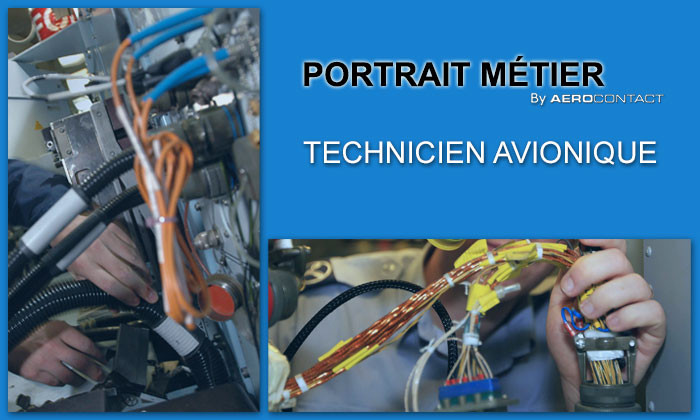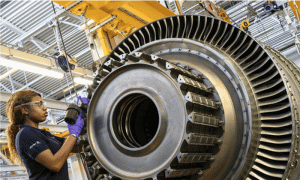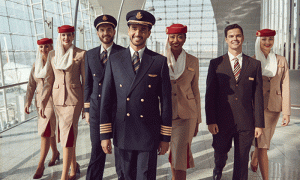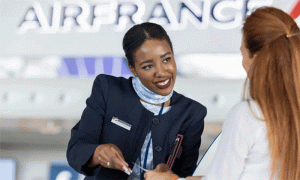 © Aerocontact
© Aerocontact
Avionics technician, crossover portraits
This summer, we have decided to present you aviation and aerospace jobs through testimonies of professionals.
This week, focus on the profession of Avionics Technician through the testimonies of three professionals: Laurent, Cyrille and Richard.
The daily work of an Avionic Technician
First of all, it is important to know that the tasks and the daily work of the avionics technician vary according to the type of maintenance : line maintenance and base maintenance.
« The line maintenance is essentially the implementation and the repair of the aircraft following the remarks of the crews. The technician is in contact with the operation of airlines and is required to work rotating day or night, week or weekend. » explains Laurent. « Base maintenance is generally carried out in a hangar on" Check "aircraft. The work is completely different because it responds to a specific protocol. The technician performs tasks of maintenance, verification, control and replacement of expired parts under the guidance of a team leader, » he added.
For Richard, his daily work consists in « implementing, programming and troubleshooting all the systems implanted on an aircraft (airliner or fighter) such as : Communications ; Navigation (GPS, VOR, ILS, aerodynamic probes) ; Identification ; Flight controls (autopilot) ; Engine and fuel management ; Indoor packaging ; Countermeasures. »
« As an line maintenance technician, I perform troubleshooting on electrical and radio circuits, following technical constraints reported by the crews » added Cyrille.
But the daily routine of an avionics technician is not limited to the strict repair of aircraft.
« Scheduled maintenance tasks are also performed daily such as checking the integrity of the circuits and their operational operation. We also have to carry out Aircraft Station License Tests, manage and follow troubleshooting, equipment and parts orders, » Cyrille concluded.
The skills and qualities of an avionics technician
More than any other profession, rigor is required to be a good avionics technician. « Rigor, meticulousness and self-denial are, in my opinion, the essential qualities for this profession. The forgetting of a tool in the middle of the flight controls can have disastrous consequences, even tragic. » explains Richard.
« Of course, like any technical job, you must have good dexterity and be in good physical condition. You also need to know how to work as a team, » adds Laurent.
In addition to this, Cyrille tells us that « as a result of rapid technological changes, the learning of this profession is constant. »
The positive and negative aspects of the job
As avionics technicians, Laurent, Cyrille and Richard agree on one point : it is a job where routine does not exist.
« It's a constantly evolving business. We have access to advanced technologies. There is no routine. We have the possibility to work on any type of aircraft, from the airliner to the helicopter to the fighter, contrary to mechanics who must pass modules according to the specificities of each aircraft. » says Laurent.
For Richard, his job goes hand in hand with his passion, « seeing an airplane take off or fly for a check gives me a feeling of fulfillment and adrenaline. »
Finally, even if it is subject to many regulations, « the avionics technician keeps a certain autonomy », according to Cyril. « Moreover, we are in contact with all aerospace works (mechanics, boilermaker, armorer, among others). »
As for the negative points, « this job is barely recognized in France, due in particular to unattractive wages. Most technicians seek to emigrate to the Anglo-Saxon countries to obtain higher salaries, » says Laurent. « What is incomprehensible is that dozens of engineers are required to create an aircraft and as soon as it is in service, only one APRS* technician is required to say if the aircraft is able to fly, » he adds.
For Cyrille « the traceability of operations is complicated, there are many reports to write. Moreover, the apprenticeship of this trade is quite long (about 3 years). »
The salary of an Avionics Technician
As in any trade, there is not a single salary. This varies depending on the experience. « For a beginner with qualification license 66 B2 theoretical avionics I would say around 2100 € gross per month,» says Cyrille. « With 10 years of experience and Qualification Type aircraft + license B2 + APRS, I would say at least 3000 € gross per month given the responsibilities. » he continues.
« Salary also varies depending on the job (military or civil). » adds Richard.
Laurent goes in the same direction : « In the army, we can expect a starting salary around 1200 € net and around 1500 € after 10 years of service. For the aircraft manufacturers, a beginner can expect 1700 € gross, then 2000 € after 10 years. Salaries are the same for airlines and maintenance centers. » he concludes.
Possible evolutions
All three are unanimous, there are several possible evolutions : the technician can evolve into management positions, team leader, workshop leader, visiting manager, technical director.
An avionics technician with great experience can also become a trainer, as Richard, « I was a technician on fighter aircraft for more than 20 years. I am now an avionics instructor at a graduate school. »
Training
« Having a general scientific baccalauréat, I joined the French Air Force as an avionics technician. After 15 years, I returned to civilian life while remaining avionics technician. I obtained my Part 66 license by passing all the modules. My different employers also allowed me to obtain several types of qualifications. » explains Laurent.
« After a general BAC, I was trained in the French Air Force at Rochefort sur Mer for 18 months; I had more trouble than a BAC F2 or F3. » adds Richard.
« I was trained in the French Air Force : on board electronics technician, then avionics technician and finally avionic trainer. » concludes Cyril.
Aviation and Aerospace as a common passion
These three avionics technicians are above all passionates of the sector. « I wanted to fly helicopters and planes. » says Richard. « It's a sector at the cutting edge of technology, and I have a real passion for fighter aircraft. » adds Cyrille.
The Last Tip
« To become an avionics technician, you have to be motivated and very rigorous. We must also have a sense of responsibility : flight safety is at the heart of our business. » explains Cyrille.
« You have to be patient and curious. The advantage is to be able to draw his career according to his choices. » adds Laurent.
"You must cling on because the journey is long and very dense (more dense than for a pilot, yes!) But it's worth it. » concludes Richard.
* APRS : release to service Approval












